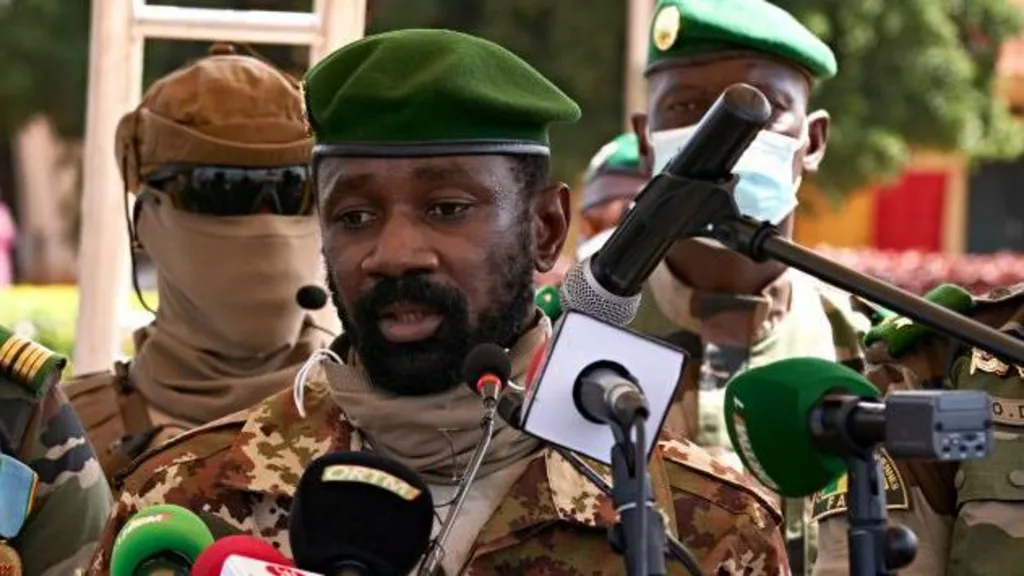Mali’s Airport Attack: A Wake-Up Call for the Junta
3 min read

A recent jihadist assault on the international airport near Bamako, Mali, has thrown the military junta into turmoil. Armed militants, brandishing the al-Qaeda flag, stormed the complex, setting fire to a presidential jet and roaming freely around the site, which should be one of the country’s most secure locations. Graphic images shared on social media illustrate the precariousness of Mali’s security situation, underscoring the threat posed by extremist groups.
The attack, which also targeted a gendarmerie training center in the Faladié suburb, resulted in significant casualties. While official reports remain vague, estimates suggest that between 60 and 100 people may have died, including some trainee gendarmes. This violence adds to a troubling history; Mali has been embroiled in conflict since 2011, when northern separatists and Islamist factions seized control of key towns.
Bamako has previously faced violent incidents, including a 2015 attack on the Radisson Blu hotel and a 2020 coup led by Colonel Assimi Goïta, who criticized the government’s inability to combat the security crisis. Since then, despite hiring Russian mercenaries for military support, the junta has struggled to regain control and end the violence.
While the northern regions have borne the brunt of the conflict, recent events demonstrate that jihadist forces can strike deeper into Mali. Previous attempts at attacks near Bamako have occurred, but this latest strike’s visibility and scope are alarming. The coalition of jihadist groups known as Jamaat Nusrat al-Islam wal-Muslimin (JNIM) has shown resilience, challenging the junta’s narrative of stability and control.
The military’s ability to respond effectively remains questionable. Despite previous success in containing smaller attacks, the junta’s recent high-profile failure at the airport reveals cracks in its security strategy. This incident coincides with heightened instability across the broader Sahel region, where jihadist groups, including the Islamic State in the Greater Sahara, have been increasingly active.
The military regime in neighboring Burkina Faso has also struggled, losing control over vast rural areas. Niger faces frequent attacks, with militants expanding their reach into coastal nations like Benin and Togo. These developments reflect a deteriorating security landscape, complicating efforts for stability in Mali.

Despite the challenges, there has been a noticeable shift in public sentiment within Mali. Last year, the government successfully reclaimed several northern towns from former Tuareg separatists, a move that garnered popular support in the south. However, recent attacks may provoke a resurgence of nationalism and ethnic tensions, particularly against communities perceived to harbor jihadist sympathies, notably the Peul (Fulani).
The junta has maintained a defiant posture, rebuffing calls from the Economic Community of West African States (ECOWAS) for dialogue. As they navigate this crisis, the regime risks exacerbating inter-ethnic distrust, leading to violent reprisals against minority groups. Videos circulating on social media depict not only official arrests but also brutal acts of vigilante justice, including lynchings of suspected jihadist sympathizers.
In this fragile environment, the recent airport attack serves as a stark reminder of the challenges facing Mali’s leadership. While the junta may seek to project strength and resolve, the reality is a precarious security situation that requires immediate and effective action. The stakes are high; failure to address these issues could lead to further destabilization, not only in Mali but throughout the Sahel region.
As the junta grapples with the aftermath of the attack, it must confront the reality of its security apparatus and the deepening crisis. The road ahead is fraught with obstacles, but a concerted effort to foster national unity and address the root causes of extremism may be essential for restoring peace and stability in Mali. The world watches closely, aware that the outcomes in Mali could have significant implications for the entire West African region.